5 Things You Must Know About Heat Exhaustion And How To Treat It
It's the middle of summer and hotter than the inside of a Hot Pocket. While driving through the California desert in the middle of the night during July, it was 112 degrees. So, what better inspiration is there than that to talk about heat exhaustion?

Heat exhaustion is one of the three heat-related syndromes with the range in severity being (1) mild heat cramps, (2) heat exhaustion, to (3) potentially life-threatening heatstroke. Heat exhaustion can begin suddenly, usually after being out in the heat working, playing, perspiring heavily, or being dehydrated.
Symptoms of Heat Exhaustion
The most common signs and symptoms of heat exhaustion include:
- Confusion
- Dark-colored urine (also a sign of dehydration)
- Dizziness
- Fainting
- Fatigue
- Headache
- Muscle or abdominal cramps
- Nausea, vomiting, or diarrhea
- Pale skin
- Profuse sweating
- Rapid heartbeat
- Stroke
If You Suspect Heat Exhaustion

If heat exhaustion is left untreated, it may lead to heatstroke, which can become lethal. If someone is experiencing heat exhaustion, take these steps immediately:
- Move the person into a shady or air-conditioned space.
- Lay the person down and elevate the legs and feet slightly.
- Remove tight or heavy clothing.
- Have the person drink cool water or other nonalcoholic beverage without caffeine. Sports drinks with electrolytes are a great option.
- Cool the person by spraying or sponging with cool water and fanning.
- Monitor the person carefully.
Call 911 or your local emergency number if the person's condition deteriorates, especially if he or she experiences:
- Fainting
- Confusion
- Seizures
- Fever of 104 F (40 C) or greater
If the patient's condition turns serious, be sure you have an IFAK on hand so you can address the conditions that arise. The two life-threatening symptoms you should mainly watch for is if the patient has stopped breathing or their tongue has blocked their airway.
Heat exhaustion is a heat-related illness that can occur after you've been exposed to high temperatures, and it often is accompanied by dehydration. There are two types of heat exhaustion:
- Water Depletion - Signs include excessive thirst, weakness, headache, and loss of consciousness.
- Salt Depletion - Signs include nausea and vomiting, muscle cramps, and dizziness.
Although heat exhaustion isn't as serious as heat stroke, it isn't something to be taken lightly. Without proper intervention, heat exhaustion can progress to heat stroke, which can damage the brain and other vital organs. Worst case scenario, it can cause death.
Risk Factors for Heat Exhaustion
Heat exhaustion is strongly related to the heat index, which is a measurement of how hot you feel when the effects of relative humidity and air temperature are combined. A relative humidity of 60% or more hampers sweat evaporation, which hinders your body's ability to cool itself.
The risk of heat-related illness dramatically increases when the heat index climbs to 90 degrees or more. So it's important to pay attention to the reported heat index, especially during heat waves, and also remember that the heat index is even higher when you are standing in direct sunlight.
If you live in an urban area, you may be especially prone to develop heat exhaustion during a prolonged heat wave, particularly if there are stagnant atmospheric conditions and poor air quality. In what is known as the 'heat island effect,' asphalt and concrete store heat during the day and only gradually release it at night, resulting in higher nighttime temperatures.
Other risk factors associated with heat-related illness include:
Age
Infants and children up to age 4, and adults over age 65, are particularly vulnerable because they adjust to heat more slowly than other people.
Health Conditions
These include heart, lung, or kidney disease, obesity or underweight, high blood pressure, diabetes, mental illness, sickle cell trait, alcoholism, sunburn, and any conditions that cause fever. People with diabetes are at increased risk of emergency room visits, hospitalization, and death from heat-related illness and may be especially likely to underestimate their risk during heat waves.
Medications
These include some medicines in the following classes: diuretics, sedatives, tranquilizers, stimulants, heart and blood pressure medications, and medications for psychiatric conditions.
Check with your doctor to see if your health conditions and medications are likely to affect your ability to cope with extreme heat and humidity.
Preventing Heat Exhaustion
When the heat index is high, it's best to stay inside in air conditioning. If you must go outdoors, you can prevent heat exhaustion by taking these steps:
- Wear lightweight, light-colored, loose-fitting clothing, and a wide-brimmed hat.
- Use a sunscreen with an SPF of 30 or more.
- Drink extra fluids. To prevent dehydration, drink plenty of water, fruit juice, or other liquid without alcohol or caffeine. Because heat-related illness also can result from salt depletion, it may be advisable to substitute an electrolyte-rich sports drink for water during periods of extreme heat and humidity. Ask your doctor about the best types of fluid and how much you should be drinking.
- A general recommendation for those doing moderate to high-intensity exercise should drink around seventeen to twenty ounces of fluid two to three hours before exercise, and consider adding another eight ounces of water or sports drink right before exercise. During exercise, you should consume another seven to ten ounces of water every twenty minutes, even if you don't feel thirsty. Also, drink another eight ounces within a half hour after exercise. Take additional precautions when exercising or working outdoors. All of these numbers are approximate and should be tailored to your needs.
- Avoid fluids containing caffeine or alcohol, because both substances can make you lose fluids and worsen heat exhaustion. If you have epilepsy or heart, kidney, or liver disease, are on a fluid-restricted diet, or have a problem with fluid retention, check with your doctor before increasing liquid intake.
Recap on Treating Heat Exhaustion
If you, or anyone else, has symptoms of heat exhaustion, it's essential to immediately get out of the heat and rest, preferably in an air-conditioned room. If you can't get inside, try to find the nearest cool and shady place. Other recommended strategies include:- Drink plenty of fluid.
- Remove any tight or unnecessary clothing.
- Take a cool shower, bath, or sponge bath.
- Apply other cooling measures such as fans or ice towels.
If such measures fail to provide relief within 15 minutes, seek emergency medical help, because untreated heat exhaustion can progress to heat stroke.
After you've recovered from heat exhaustion, you'll probably be more sensitive to high temperatures during the following week. So it's best to avoid hot weather and heavy exercise until your doctor tells you that it's safe to resume your normal activities.
Most importantly, have fun this summer, stay cool, and make sure you have a first aid kit!
Additional Note
If you notice heatstroke symptoms in yourself, see a medical professional!
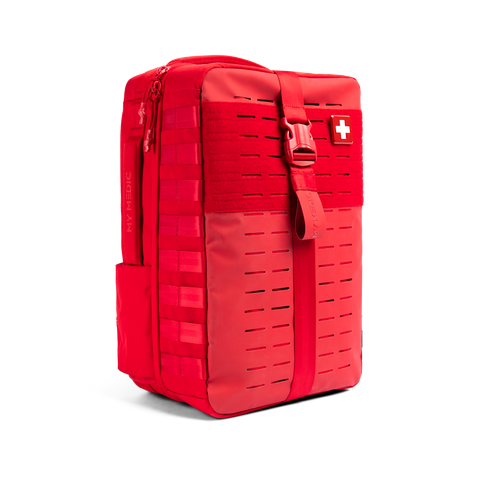 NEW ARRIVALS
NEW ARRIVALS
 BEST SELLERS
BEST SELLERS
 SUPERSKIN™
SUPERSKIN™
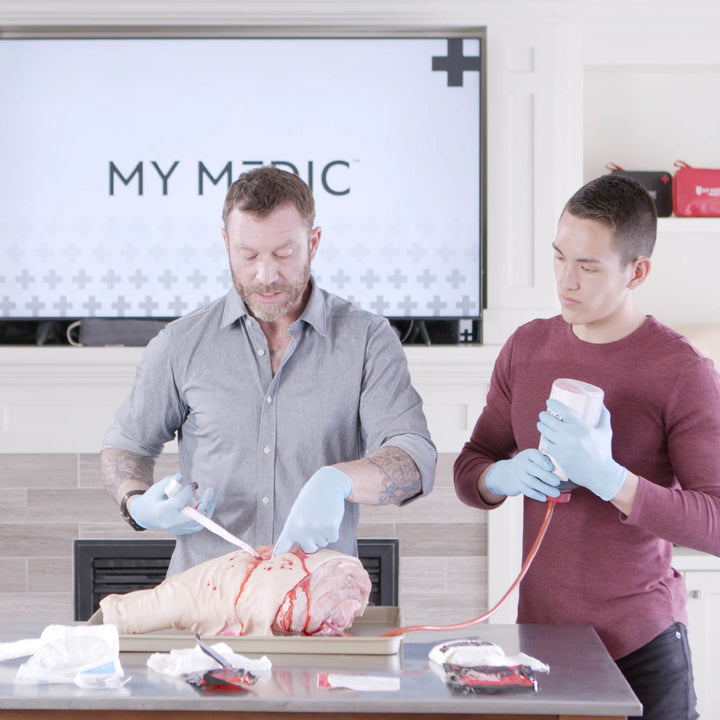 COURSES
COURSES
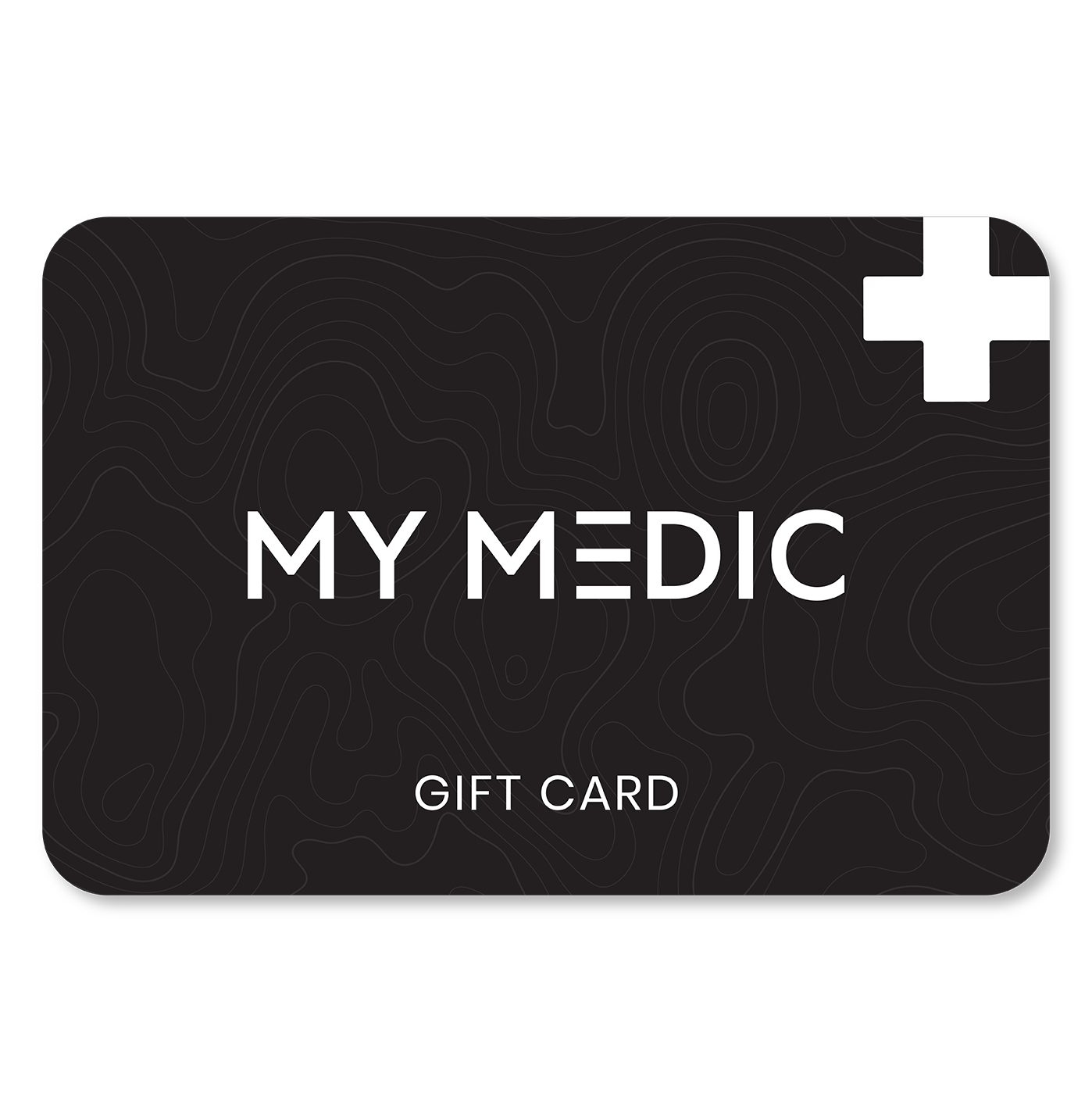 GIFT CARDS
GIFT CARDS
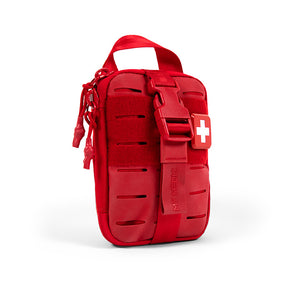 The MyFAK Collection
The MyFAK Collection
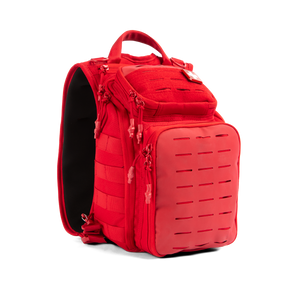 Specialty
Specialty
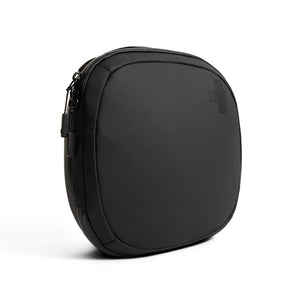 The Ready Collection
The Ready Collection
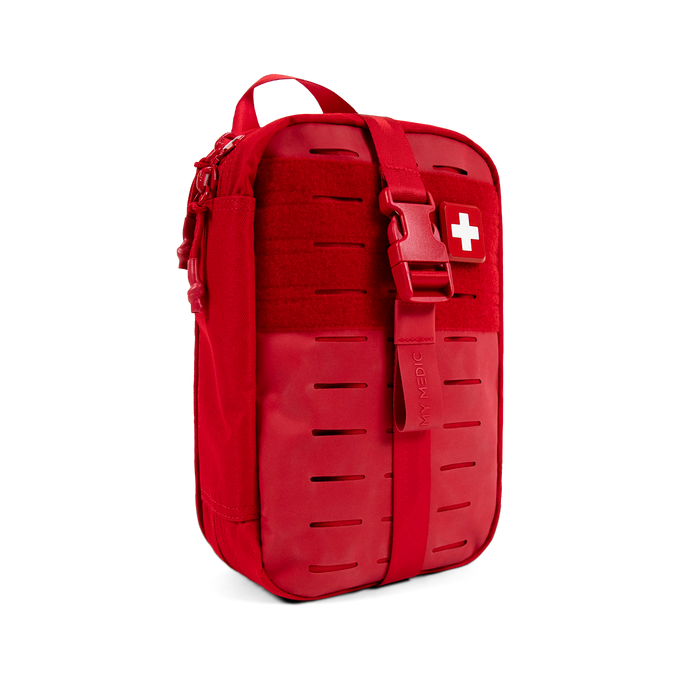
 BLEED
BLEED
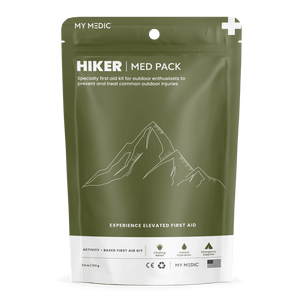 OUTDOOR
OUTDOOR
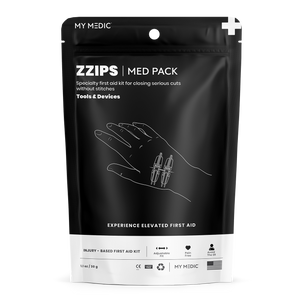 TOOLS & DEVICES
TOOLS & DEVICES
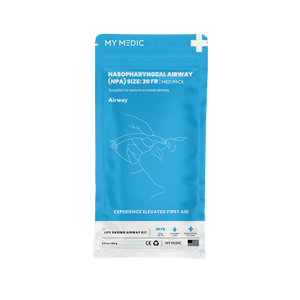 AIRWAY
AIRWAY
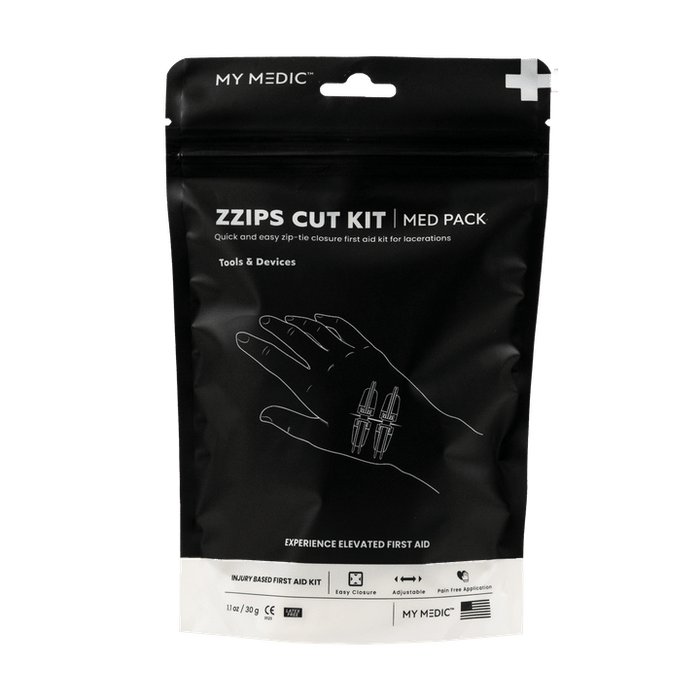
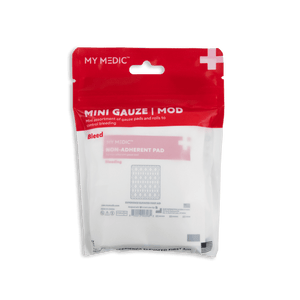 BLEED
BLEED
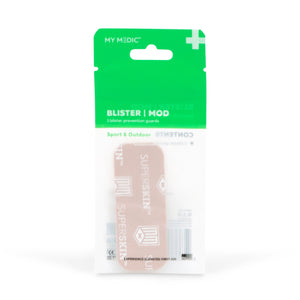 OUTDOOR
OUTDOOR
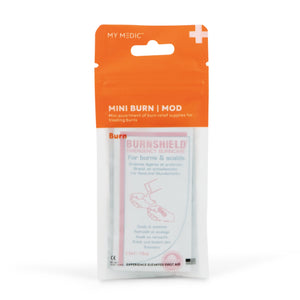 BURN
BURN
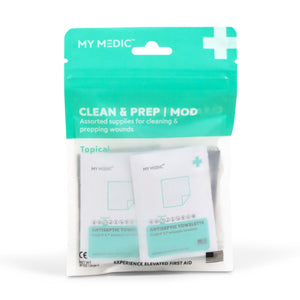 TOPICAL
TOPICAL
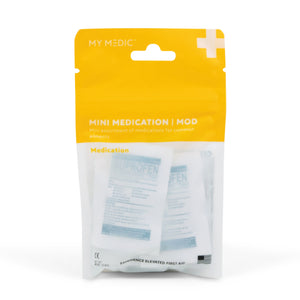 MEDICATION
MEDICATION
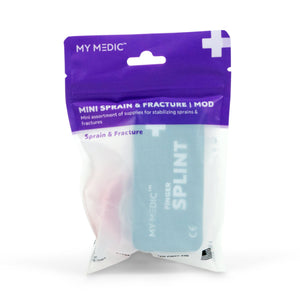 SPRAIN & FRACTURE
SPRAIN & FRACTURE
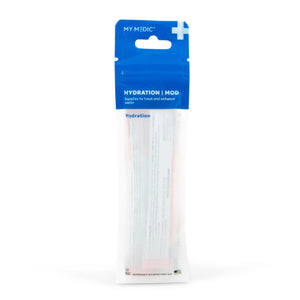 HYDRATION
HYDRATION
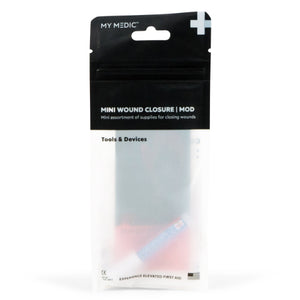 TOOLS & DEVICES
TOOLS & DEVICES
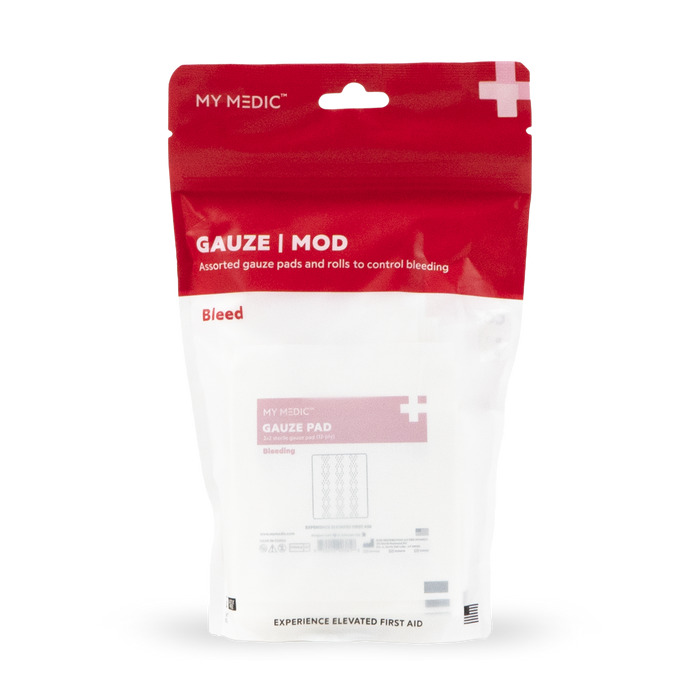
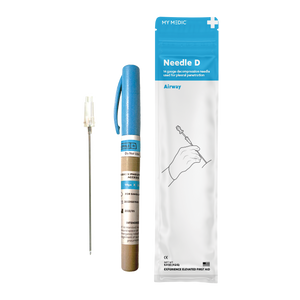 Supply Categories
Supply Categories
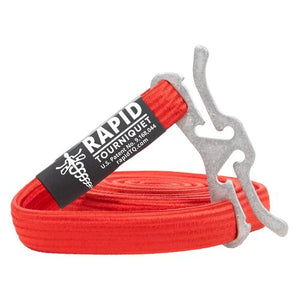 Top Sellers
Top Sellers
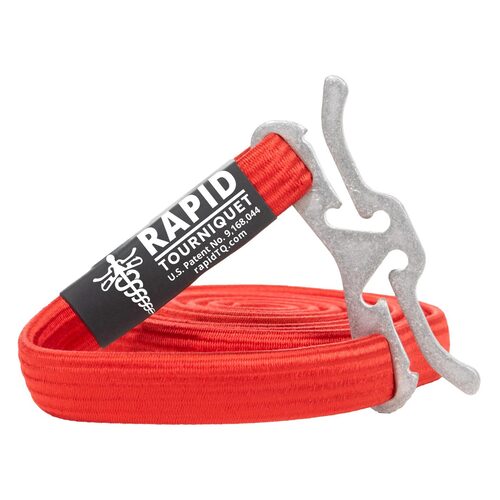





I was hot and sweating but feeling light headed so came in and cooled down. found i couldn’t hold any water or food down. one sip or bite and immediately threw it up but didn’t feel bad. Applied ice packs under arms and neck. i had a neck fan on
so surprised that happened. i am 84 yrs old.
———
My Medic replied:
Hey Donna, that sounds awful! We highly recommend getting checked out by a medical professional to make sure you’re alright.
I’ve been dealing with heat exhaustion since Friday and today is Tuesday, went to the ER and not heat stroke thank god, my legs still feel wobbly and headache in the back of my head. I’ve stayed in a room in the house with a fan on me and it’s dark. Went outside and sun was brutal, only 5 minutes outside. Drinking fluids mostly water. The Celsius packs I have made it worse and was dehydrated faster. Still can’t focus and still tired after 4 days
———
My Medic replied:
Hey, Bryan! Yikes, we hope you feel better soon! We’d recommend getting checked out by your primary doctor if need be.
I think I had heat exhaustion and I’m day2. Feel awful. When will I get better?
———
My Medic replied:
Hey Jamie, if it’s lingering, we recommend seeing your doctor!
I don’t know how long it lasts on the aftermath? I believe I had a heat episode yesterday as I am 62 and I was riding my bike in extreme heat in the middle of the day and I suddenly became exhausted , throwing up and being confused. I think I had a heat problem or some sort. Luckily my friend ride up on me and put water and my head in several spots and around neck, i stopped throwing up but stil was gagging , I had to lay down but we were still in the sun. I knew I had to find a shaded area fast. I walked over to the shade and just laid down. I called for a ride and he came to get me and I had stomach cramps all day and was extremely tired and just slept the rest of the day? I am hoping the symptoms stop sometime today.
———
My Medic replied:
Hey, Debbie! If the symptoms persist, you may need to see a doctor. Hope you feel better soon!
Heat exhaustion on Saturday. It’s Thursday morning and I can only keep liquids down. No food yet.
———
My Medic replied:
That’s awful; we hope you feel better soon!
Leave a comment